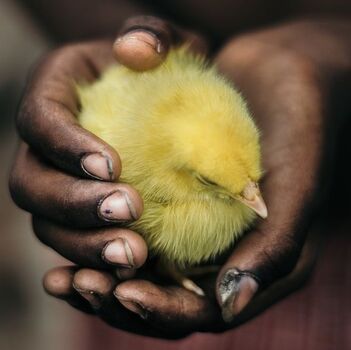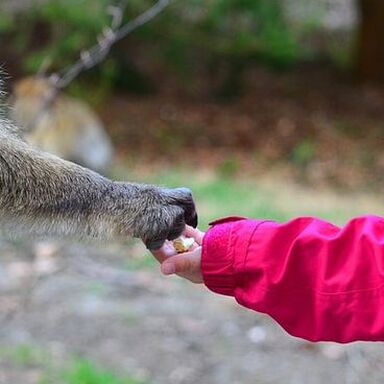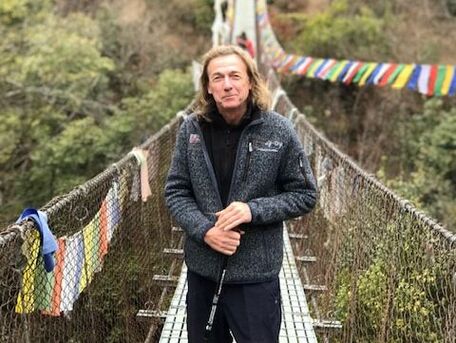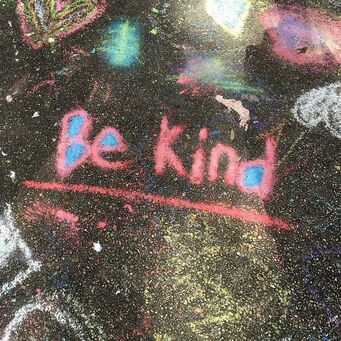|
9/6/2020 David Jamilly - The beginning or the end for endangered species: Will the post pandemic world be a kinder place?Read NowDavid JamillyDavid Jamilly has been involved in social projects since his teens. In 1977, he set up the Pod Children's' Charity, which has provided live entertainment for over a million hospitalized children in the UK. David is involved with various social projects in Bhutan and numerous causes in the UK. He is the founder and CEO of Kindness UK since 2011; the country's benchmark organisation for promoting the positive value of kindness in day to day life. Kindness UK has recently expanded its focus to promoting kindness in relation to animals and the environment. Here is why.Will the post pandemic world be kinder?In times of crisis, the human psychological reaction is to think local as opposed to global. What this means is that funding from the West for many wildlife preservation projects has dried up during the pandemic period, with dire consequence for many species. Conservation projects often protect species from local populations which hunt primarily for need, not greed. However, it is greed that is ultimately the driving factor; the greed of those who already have enough, which fuels the need of the locals who end up as exterminators. This same insidious cycle applies to the natural world and the destruction of the environment and its natural resources like water and forests. Unfortunately the disparity between rich and poor globally has never been more exaggerated, and it is this imbalance that needs to be redressed as quickly as possible for the protection of threatened animals. Although the air smells sweeter as carbon emissions are temporarily reduced, there are day by day less free animals around to enjoy it. During the pandemic we have seen lots of amazing local kindness initiatives spring up. Examples include voluntary food projects, key worker support and organisations that provide care for the vulnerable; as well as wide enhanced neighbourhood bonhomie and sharing. Some of this will continue in one form or another and the world will indeed be a kinder place for a period in the direct aftermath of the crisis. However it will unfortunately take a much longer time until attentions are re-focused on the plight of endangered species. This most certainly highlights the crucial need to support projects like People for Peace and Nature and others now, as their work takes on increasing importance both on local activation and on lobbying/awareness levels. In terms of kindness itself; it cannot be taught as easily to adults as it can to children. Young minds yearn for fresh information and assimilate positive values readily. With adults it is more a case of reprogramming or epiphany. Another feature of kindness is that it has more impact on a bottom up basis rather than a top down; but nevertheless it is ultimately through global mass kindness that we can effect enduring positive societal change. We are privileged to share this beautiful planet with so many wonderful species and it is imperative that we urgently turn our thoughts towards them before it is too late.
6 Comments
Nikki Botha
10/6/2020 15:32:57
Thank you for making the world a kinder, more bearable place David. We need more people like you.
Reply
10/6/2020 16:32:39
Thank you Nikki......these kind words apply to you too.
Reply
Clifford Gee
18/6/2020 12:06:01
David, thank you for making people more alert to what is happening in the world today. People must think consciously how they act today will be what the reaction to the world will be tomorrow.
Reply
Gary Davison
20/6/2020 11:12:42
Davids words and his commitment really emphasise the importance of remaining focused and aware of what is happening across the world and the need for continuing vigilance and support to protect our environment and the natural world in every way possible. I think that kindness in all its forms is so important in enabling both children and young adults to support programmes as well as the rest of the community at large in securing our planet and the natural world that is sustained by it.
Reply
Tomas Sterner
22/6/2020 06:28:37
That has certainly made me think! It's a big topic and I can't even begin to grasp the scale of the problem. Yesterday, on Radio 4, I heard this poem by Naomi Shihab Nye called Kindness. I think it reflects our current situation and I think it gives hope:
Reply
Leave a Reply. |
|
CONNECT WITH PEOPLE FOR NATURE & PEACE
|
MAKE A GIFT TO NATURE
|
|
All rights reserved © 2022 People for Nature & Peace
|
Registered charity no. 1183764
|






